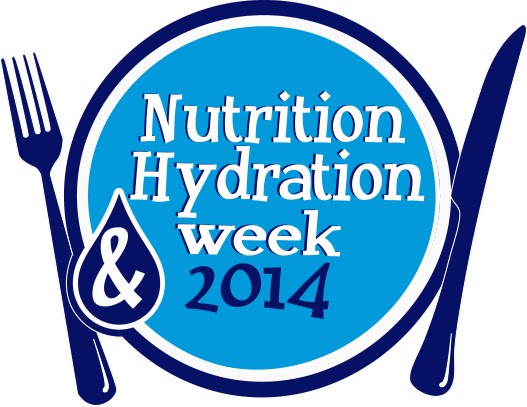Nutrition and Hydration Week Part 3
In an ideal world......
all our underweight patients would be eating all their meals, drinking at least 2000 mls a day and have put on weight by the end of their hospital stay! In some cases, that happens and it's great but unfortunately in many incidents, that is not even close to the result.
What can we do when despite all our efforts, our patients don't want hardly anything? We watch them losing weight despite all our pleading, begging and the doctors asking us to "encourage oral intake".
Firstly, we can talk to them and find out what is stopping them. Occasionally we discover medical reasons behind it such as "I get horrible heartburn when I eat", "I feel like I have a lump in my chest and food won't go down", "I feel too full", "I can't chew, it hurts". Here we have possible examples of acid reflux, oesophageal problems, constipation or mouth ulcers. These can often be resolved with medical intervention and modified diets. Such issues may not have been raised on admission especially if non -related such as a fall.
Sometimes the reasons given are "I am not hungry", "I can't be bothered", "I don't want to and you can't make me".
What do we do then? Once again, we can ask family or care homes what the patients' used to enjoy. Sometimes family can bring in cream cakes or other "used to be enjoyed" items of food. Sometimes, a cup of soup as opposed to a bowl of soup will go down better as it requires less effort and will combine food value with fluid intake. Ice cream can have the same effect. Occasionally I have had a patient with dementia who will only eat sweet things and had one who would only eat trifles! It did not matter what else we tried giving her, that is all she would have. We did however add some extra banana to try and "healthy" it up a bit. But, that is all she would let us do. The dieticians did their best with introducing supplements but the result there was a bit hit and miss.
I believe that in some instances the patient has genuinely has no interest or desire to eat, however, they usually don't want to be in hospital either and mentioning that eating and drinking is a faster way to discharge sometimes will do the trick.
Many of our patients have lived through rationing and austerity and hate to see waste. They would rather not eat and "give the meal to someone else" than start it and waste it. For patients who cannot manage big meals and they only come in one size fits all, then plating out a small portion often helps.
The best we can do is to try everything, sweet, savoury, finger foods, assorted cutlery, sitting with them with some food to "keep them company", family input and persuasion, jam sandwiches, build up drinks, fortified hot and milky drinks etc and to notify staff when fluid intake too low. All we can do is our best and although we may not win in every case we have to remind ourselves that we are dealing with grown ups who mostly know how they feel and what they want and who still would like some control in their lives. Respect for the individual and to try not to turn caring into nagging is key.



Comments
Post a Comment